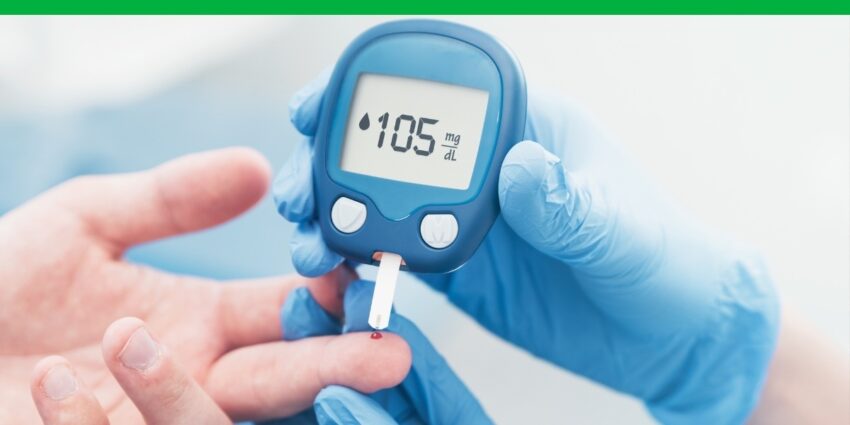
What you need to know about type 2 diabetes
Post Date - Dec 5, 2022
Studies have shown that diabetes that affects around 14 percent of adults in the United States, and more than a quarter of adults over the age of 65. Diabetes diagnoses have risen over the years, and it’s estimated that about 3 percent of adults are still undiagnosed. Due to the sedentary nature of their work, truck drivers are 50 percent more likely to develop type 2 diabetes, and since November is Diabetes Awareness Month, Ascend wanted to share some things you should know about type 2 diabetes and prevention:
What is diabetes?
Diabetes is a condition that affects the body's ability to process blood sugar. Normally, the pancreas produces insulin, which helps the body to use sugar for energy. However, in people with diabetes, the pancreas doesn't produce enough insulin, or the body can't effectively use the insulin that is produced. As a result, sugar builds up in the blood instead of being used for energy. Over time, this can lead to serious health problems, including heart disease, stroke, and kidney failure. People with diabetes need to carefully manage their blood sugar levels through diet, exercise, and medication. With proper treatment, people with diabetes can lead healthy and active lives.
Prediabetes risk factors
Since type 2 diabetes is mainly a lifestyle-related condition, there are certain factors that put you more at risk for a diabetes or prediabetes diagnosis. Prediabetes means that your blood sugar levels are higher than normal, but they’re not high enough to be diagnosed as diabetes. Prediabetes risk factors include:
- being overweight or having a sedentary lifestyle
- being 45 years of age or older
- having a family history of type 2 diabetes
- having gestational diabetes during pregnancy
- being Black, Alaska Native, American Indian, Asian American, Hispanic, or Pacific Islander American
Know the symptoms
Some of the most common symptoms of diabetes include increased thirst, frequent urination (especially throughout the night), and extreme fatigue. Other symptoms include sudden weight loss, excessive hunger, blurry vision, numbness or tingling in the hands or feet, extremely dry skin, slow-healing wounds, and more infections than usual.
Steps to prevent type 2 diabetes
Type 2 diabetes is a condition that can lead to other significant health issues, such as heart disease, stroke, blindness, and kidney failure. Preventing or delaying type 2 diabetes can often be achieved through lifestyle changes including:
- regular exercise
- maintaining a healthy weight
- eating a healthy diet
- quitting smoking
The importance of dental care
Type 2 diabetes can also affect the health of your teeth and gums. For example, high blood sugar levels raise your risk of cavities and early and advanced gum disease. Signs of gum disease include:
- Red, sore, swollen, or bleeding gums.
- Receding gum line.
- Bad breath that won’t go away.
- Excessive white or yellow plaque.
- Infections between your teeth and gums.
If you have one or more of these symptoms, make an appointment with your dentist right away.
Here are some things you can do to improve your oral health:
- limit food and drinks high in sugar
- visit your dentist every six months for regular cleanings and checkups
- brush your teeth at least twice a day and after meals and snacks, if possible
- use fluoride toothpaste to prevent cavities
- floss daily
Being proactive and taking care of dental issues early on can save you a lot of money. According to the Mayo Clinic, people with diabetes who receive gum disease treatment are likely to shell out as much as $6,000 on healthcare costs. This is why it is so important to have routine dental care.
At Ascend, we care about the whole person and are proud to offer health and dental insurance through Anthem to help you address health issues such as diabetes. Regular appointments with your doctor are the best way to address any health concerns and prevent, diagnose, or manage type 2 diabetes. If you find yourself experiencing any of the symptoms listed above, we can help you find a provider.
If you'd like to hear more about the health and wellness benefits or any of the other incredible perks Ascend offers its drivers, reach out to us today!
1 Centers for Disease Control and Prevention: About Diabetes (rev. June 11, 2020): cdc.gov/diabetes/basics/diabetes.html.
2 Centers for Disease Control and Prevention: Diabetes RiskFactors (rev. March 24, 2020): cdc.gov/diabetes/basics/risk-factors.html.
3 Centers for Disease Control and Prevention: Diabetes Symptoms (rev. March 24, 2020): cdc.gov/diabetes/basics/symptoms.html.
4 Centers for Disease Control and Prevention: Lifestyle ChangeProgram Details (rev. May 20, 2020): cdc.gov/diabetes/prevention/lcp-details.html.
5 Centers for Disease Control and Prevention: Tips From Former Smokers: Smokingand Diabetes (rev. March 23, 2020): cdc.gov/tobacco/campaign/tips/diseases/diabetes.html.
6 International Diabetes Federation website: Diabetesprevention (rev. August 7, 2019): idf.org.